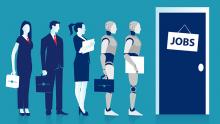Putting data privacy back in the hands of EU citizens

If data is the new gold, it’s only fair that its rightful owners can use and share it as they please. A novel Privacy-Enhanced Dashboard has been developed by the EU-funded PoSeID-on project. This will make it easier for EU citizens to exercise greater control over their personal data, across a wide range of public and private services.









